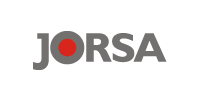Japan Overseas Rolling Stock Association (JORSA)

Visiting address
Otemachi 2-6-1
100-0004
Tokyo
Postal address
Otemachi 2-6-1
Tokyo , 100-0004
Contact
Tel +81 3 3281 0071
Fax +81 3 3281 0074
Join our community for FREE today!
Create and share your own profile
Join the discussions
Publish your own items
Subscription to our Weekly eNewsletter
Get connected with Mass Transit Professionals Worldwide
FREE membership benefits
- * create and share your own profile
- * join the discussions
- * publish your own items on Mass Transit Networkmanage news, jobs, tenders, companies, events, showcases, educations, associations and literature.
- * subscribe to our eNewsletter
Association information
JORSA's Objectives
Included in the charter of the Japan Overseas Rolling Stock Association (JORSA) is this statement: the reason for establishing JORSA is to "prevent unfair export transactions, ensure the orderly conduct of export and import transactions, and enhance the common interests of association members, thereby promoting the sound development of export trade, particularly the export of rolling stock." The wording of these objectives is similar to that of other export associations but today, unlike the situation before and immediately after World War II, it is an everyday occurrence for Japanese enterprises to promote their business overseas. So the objective stated in the charter's text, "ensure the orderly conduct of export and import transactions," is no longer relevant.
At the present time, JORSA's main roles are: handling trade insurance; presenting information overseas; reviewing, collecting and compiling information and information materials; and providing members with information. (These roles are explained in greater detail on other webpages.)
The development of railways has benefited from the four advantages rail transport offers: large volume capacity, safety, punctual services, and speed. During their development, railways have either competed with other transportation modes (primarily motor vehicles, aircraft and ships), or worked in conjunction with them. Because of the recent drive to protect the global environment and conserve energy, trains are now ranked as a vitally important transportation mode.
Because of all of these factors, much is expected of JORSA, and we are continuing to strengthen the foundation on which we promote Japan's railway-related business overseas.
Background: Japan's Various Export Associations
Our roots go back to the early 1920s. That was a time of friction and misunderstanding because the Japanese language could not be used in international transactions, and this led to mistaken assumptions about Japan's customs, trade practices and daily business operations. To overcome this problem, and to facilitate export operations and ensure fair trade, export associations were established in 1925 under the Export Association Law.
After passing through a period of confusion and uncertainty during World War II, the export associations reorganized and set out on a new beginning under the Export and Import Transaction Law in 1952.
JORSA was established the next year, on March 10, 1953 under the same Export and Import Transaction Law, after receiving approval as a special authorized corporation from the Minister of International Trade and Industry (the forerunner of today's Ministry of Economy, Trade and Industry). Special authorized corporations are, as the name implies, entities established in limited numbers under a specific law to fulfill specific objectives, with the required authorization of a government body.
By 1958 there were a total of 34 export associations in Japan promoting the export of textiles, machinery, metals, chemical products, light industry products, agricultural and marine products, lumber, and products from related sectors. Later, exports of some products dropped during a time of structural change in Japan's industries, and some export associations changed their focus or shut their doors. Today there are nine active export associations, including our own, JORSA.


